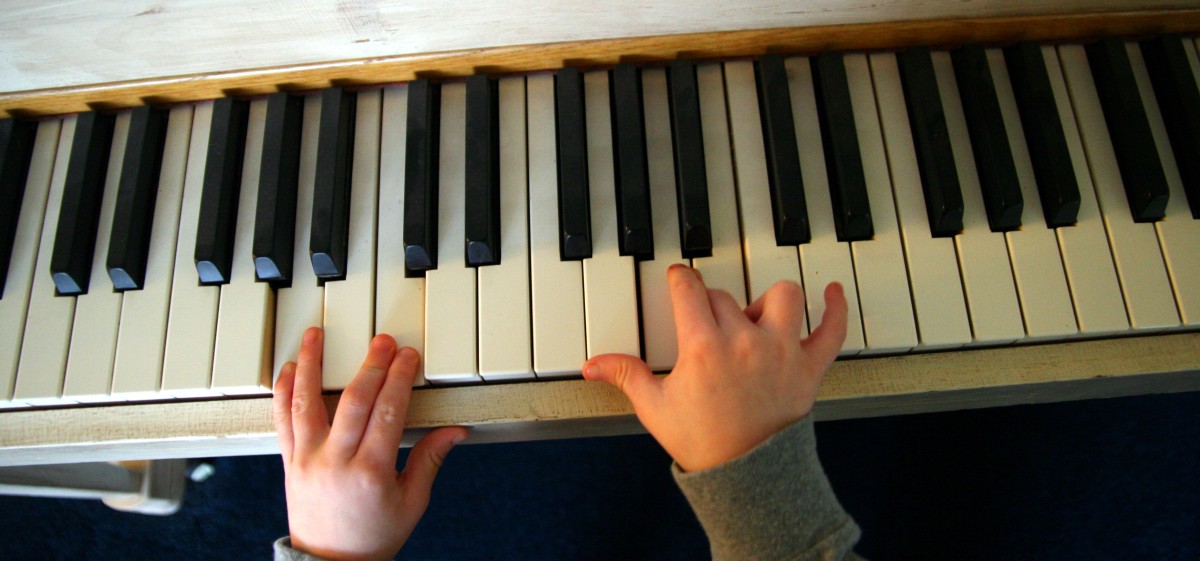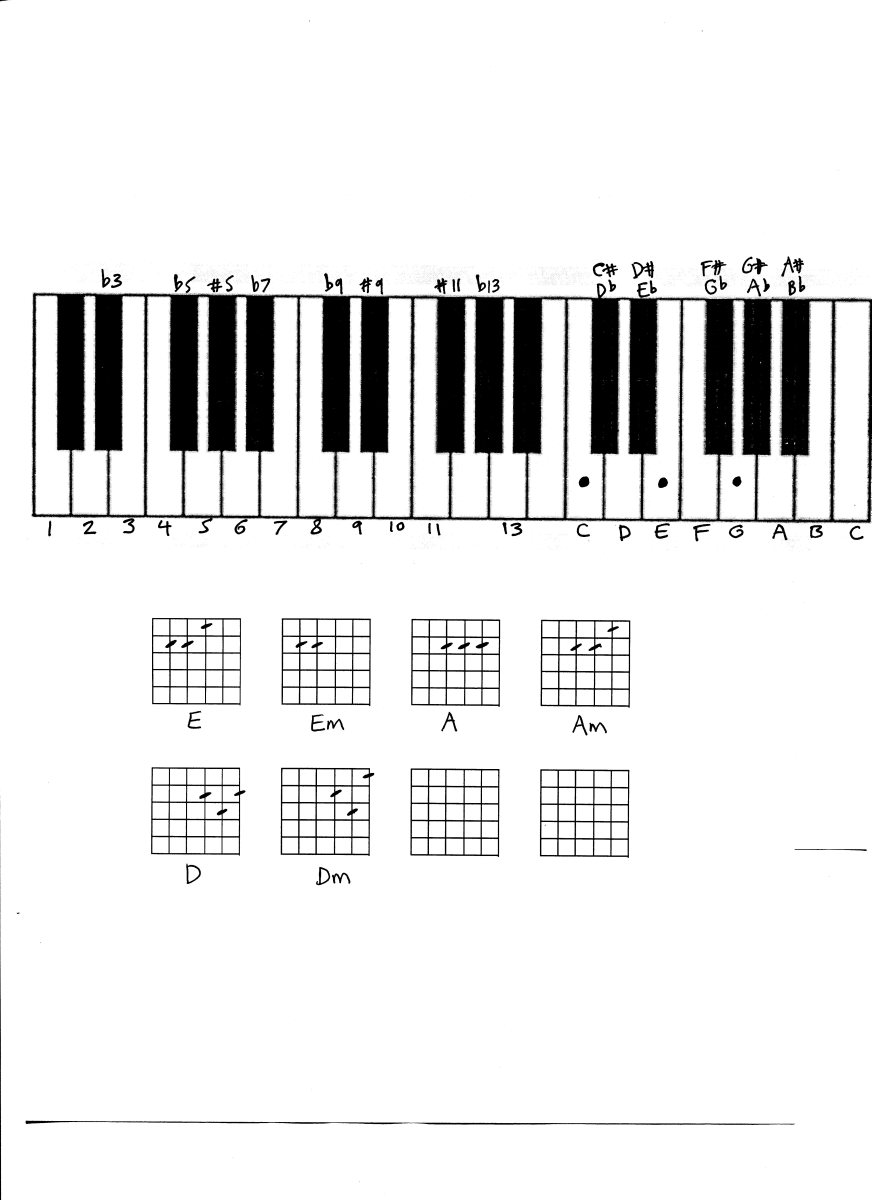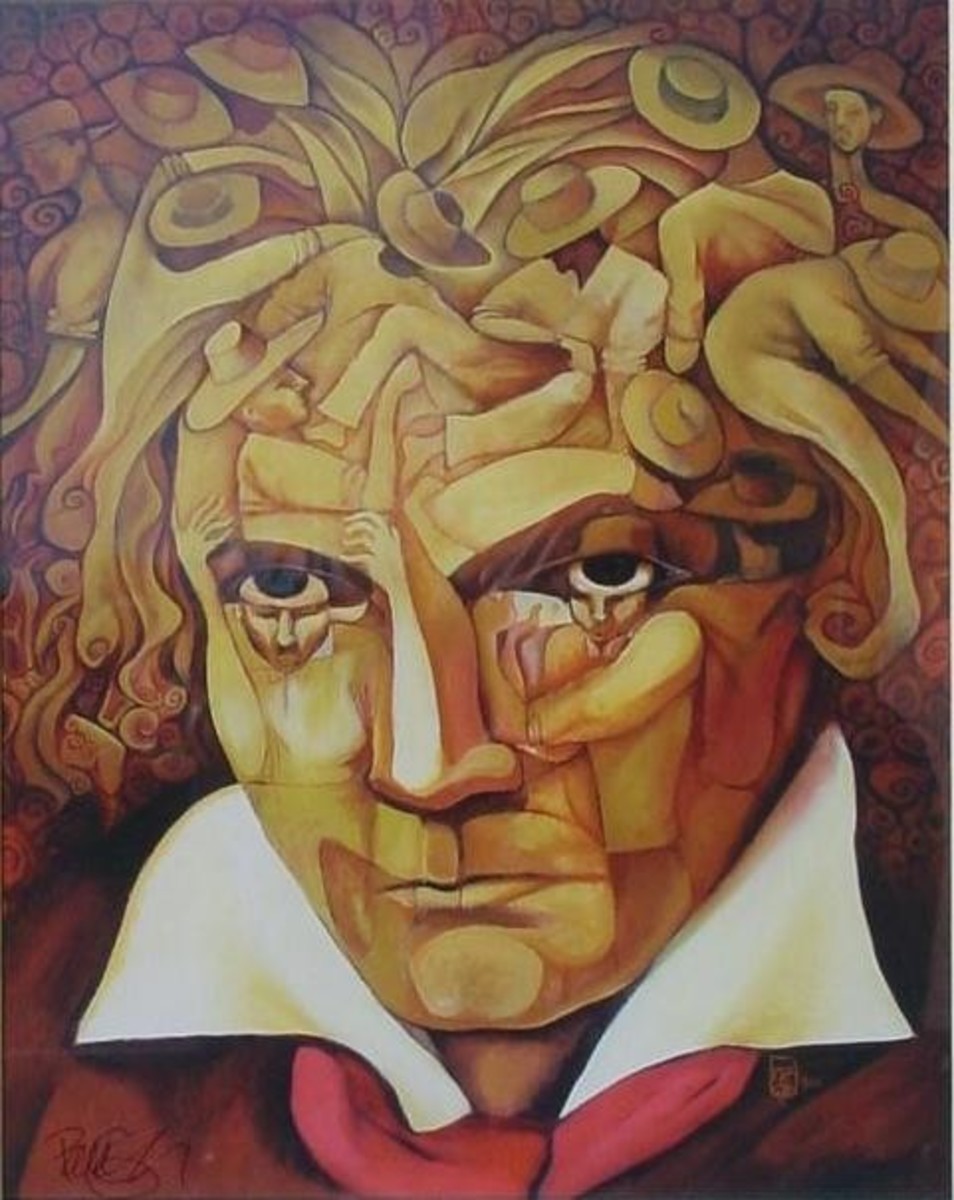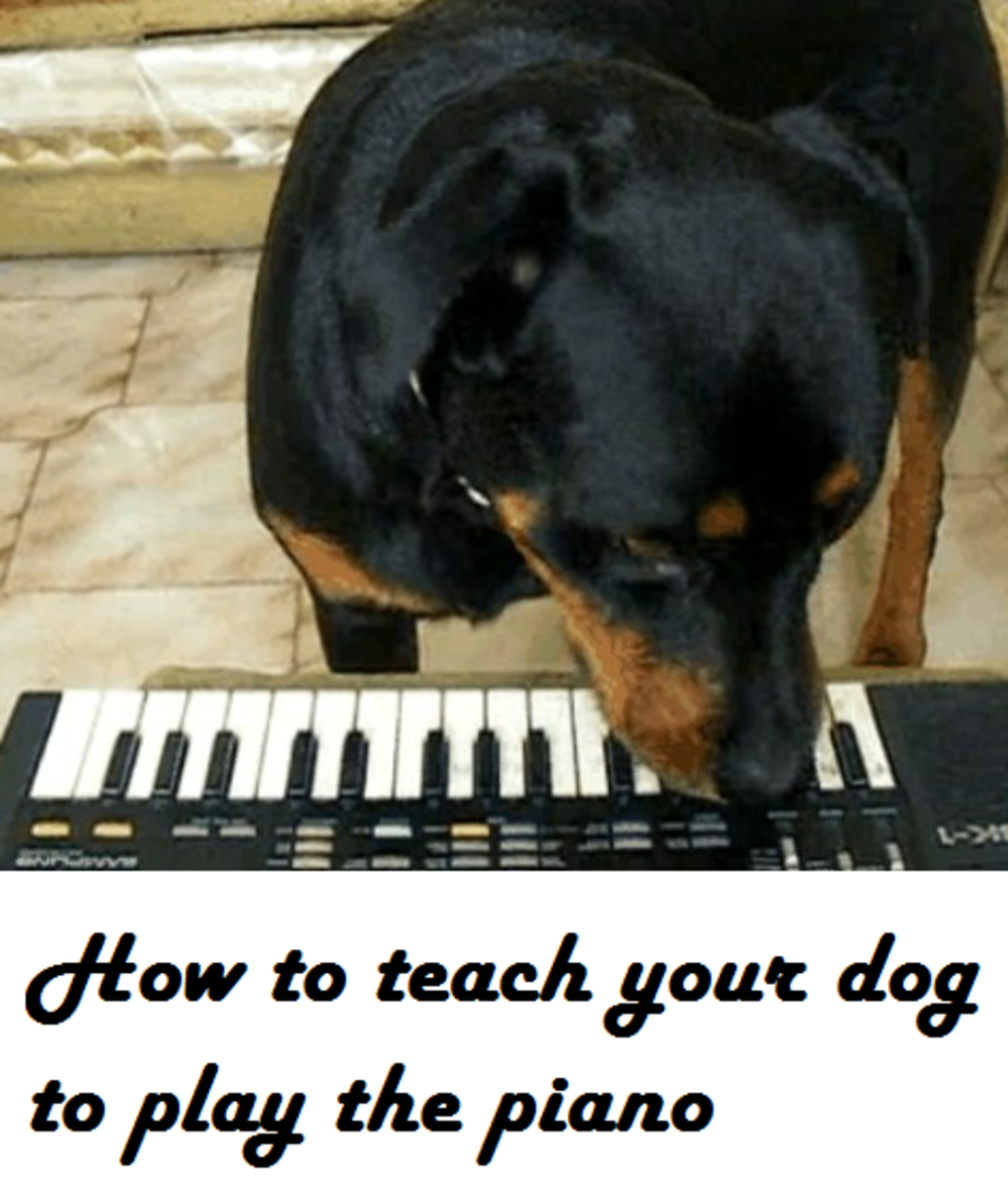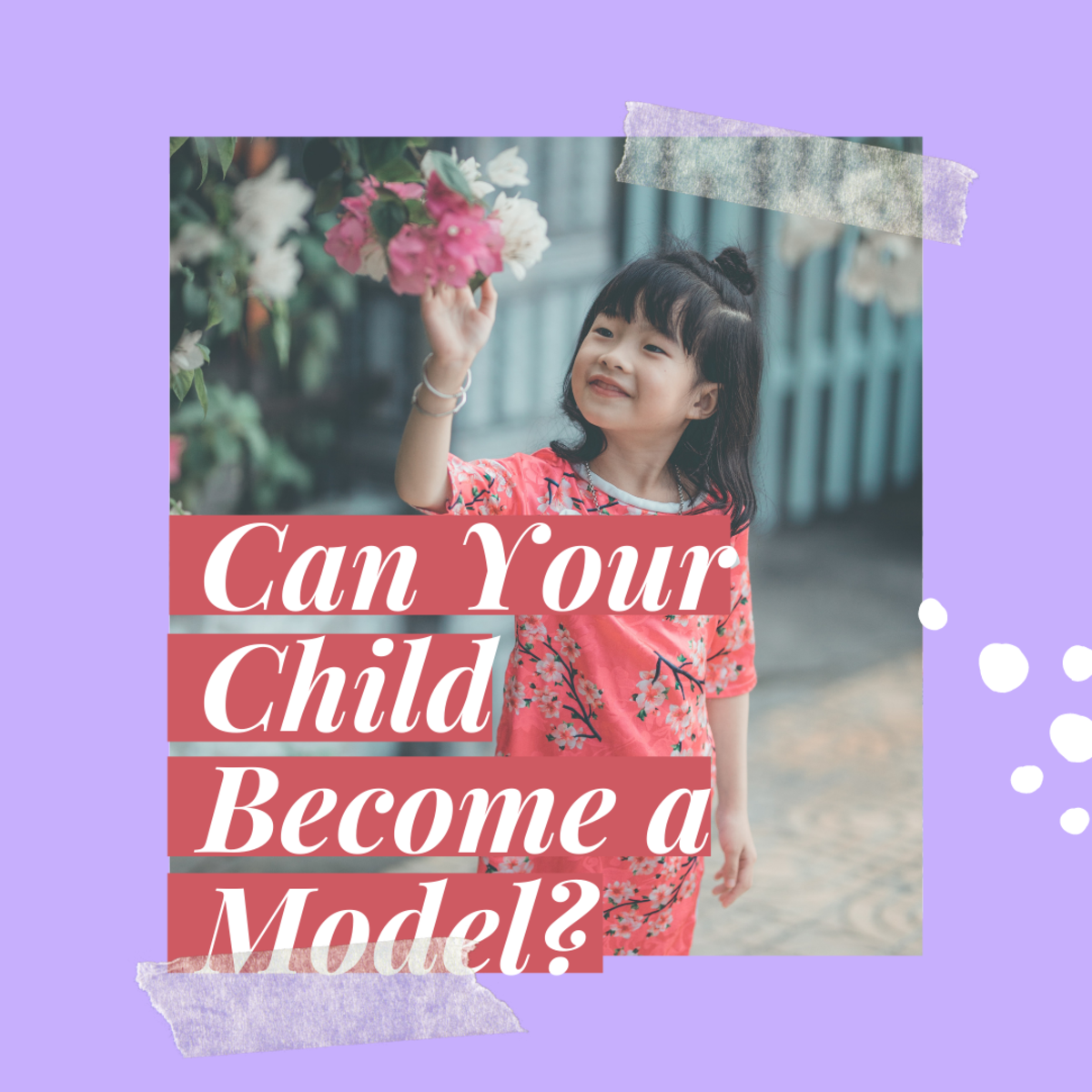Why to Start Your Child in Piano Lessons
Should You Start your Child in Piano Lessons?
Starting your child in piano lessons can be a wonderful experience for the entire family. Music can be a lifelong interest and a talent that one may never outgrow. Some studies have linked musical instruction to higher IQs. But even if intelligence quotients are not necessarily increased, musical study can help with mathematical skills, including counting and fractions. Small motor skills are also improved. After the initial months and early years of instruction, your child may improve to the point of being able to delight audiences with beautiful melodies. Some children move onto composition, creating their own sonatas of artful expression.
Before you register you child, however, consider the following:
Is your Child Interested?
Children usually do better in, and are happier with, activities in which they are interested. You can generally tell if your child will enjoy music instruction if they like to sing songs, dance, or otherwise express rhythmic movement and sounds. Unlike other musical instruments, a piano is relatively easy for young children to use. It does not require challenging breathing, mouth muscle movements, balance, or head positioning. Accordingly, piano lessons may be one of the best ways to introduce your child to early music instruction.
If your child does not show interest, it may not be a good idea to push them into instruction. Make sure they truly want to take lessons before you invest the time, energy and expense. Even if they initially resist, interest may develop in year or two, particularly if your child has friends that are playing musical instruments.
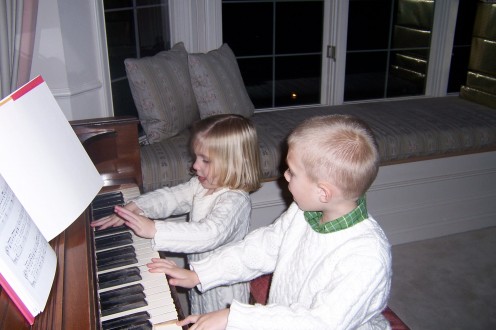
Is Your Child Ready for Piano Lessons?
Generally, formal music instruction that involves reading music should be delayed until your child can either read, or identify numbers and letters consistently. This usually occurs at ages 4-5. Some prodigy children exist, however, who can read at a very early age (2-3 years) and often these same kids may do very well with music instruction.
Traditional music lessons involve learning to read music. In beginning piano, each hand on the piano follows a different clef: treble clef for the right hand (above middle C), and bass clef for the left hand (below middle C). The notes that are positioned on the lines and spaces are different for each clef. Together the two clefs form the "grand clef."
Some children and adults learn to play simply by listening to music and then repeating what they hear. Oftentimes, these people either do not or cannot read music. Theirs is a unique gift. Play-by-ear music lessons are not as common as traditional music instruction.
Other children are gifted in the sense that they can read a piece of music one or two times and have it completely mastered (sight reading). Again, this is a true gift and not usually observed in most children.

A True Child Prodigy
Does Your Child have a Natural Talent in Music?
You need not have a baby Mozart in order to commence piano lessons. While some children have a natural musical ear, others excel by sheer determination and practice. Those children that are blessed with musical talent may progress more rapidly, or will demonstrate an enchanting touch on the keyboard - through phrasing, tempo, and sensitivity to volume. These children will thrive, even light up, with music instruction. Oftentimes, the very essence of their soul will be entwined with the creation of beautiful music. You will witness the transformation of these special people within months of their beginning lessons.
Unadulterated talent is not required, however. Any child will benefit from lessons, provided that they are interested and motivated. As discussed below, learning music may help children with math skills and given them a general appreciation of the fine arts, which should last their entire lives. Having a sense of rhythm and tone is a gift you can give your child through musical instruction.
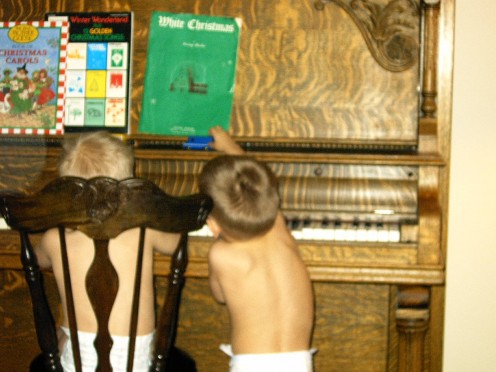
What Can You Expect with Piano Lessons?
Do not expect your child to come home from their first lessons and immediately begin working on tunes. Traditional music lessons require theory and homework that will demand an understanding of notes on a clef and the circle of keys. The notes are placed differently on treble and bass clefs. Spaces and lines can be memorized: For example: A, G, B, D, F = all good boys do fine, corresponds to the lines on the treble clef staff. The spaces are designated as F, A, C, E, spelling "face."
Learning the circle of keys will help children understand the key in which a song is written and how to transpose (change) the written music to a different key, if necessary. Identifying sharps and flats, and the major and minor keys is an important aspect of overall instruction. Some teachers work with students to draw treble and bass clefs, and to appropriately position sharps or flats on the staff to indicate the key in which the song is written. This helps ingrain these lessons, and also may benefit future composition, if the student will be creating his or her own masterpieces.
In addition to beginning songs, children will usually be required to practice scales. Each scale is different, depending on the key. For example, C-Major has no accidentals: no sharps or flats. On a piano keyboard, all the notes for a C-Major scale are made by hitting white keys. Scales become more challenging with the increased number of sharps or flats in other keys.
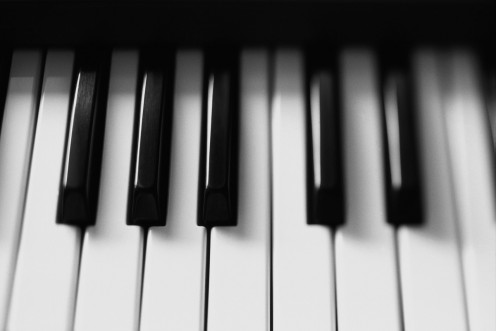
Should you Own a Piano for Lessons?
Some music teachers encourage their students to begin learning on a keyboard, instead of using an actual piano. There are several benefits to this approach: (1) portability - the keyboard can be moved fairly easily from room to room; (2) technology - a student can wear headphones to block out distracting noise and focus more closely on their progress; (3) less investment - if your child soon decides that lessons are not for them, after all, the cost of a suitable keyboard is much less than that of a piano; (4) minimal disruption - your child can practice without subjecting the entire family to the downside of having to listen to their fumbling fingers over the keys.
After a year or two of initial lessons, it is advised that your child transition from a keyboard to a piano. There are many reasons for a change to be made at this time. First, the range of a keyboard may be smaller than a piano - a piano has 88 keys and ranges approximately 8 octaves. Some keyboards only provide a range of 4-6 octaves. Second, the "touch" differs between a keyboard and a piano. Any serious pianist will tell you that before a performance or competition, it is critical to test the piano on which they will be performing. Key action may require more or less pressure to obtain certain sounds or volume. A keyboard requires a softer touch than an actual piano. Further, many keyboards do not include foot pedals that can be used to soften phrasing or change tone of the melody.
An Amazing 4-year old Pianist
Benefits of Music Instruction: What Piano Lessons Can Teach Your Child
There are many ways in which your child can benefit from piano lessons, or other musical instruction:
- Responsibility - practicing takes dedication and a set amount of time each day at the piano (20-30 minutes daily to start)
- Small motor skills
- Appreciation for the arts
- Historical instruction - learning about the eras in which certain composers lived
- Mathematical skills - fractions, counting - for example, learning how much time to give to full, half and quarter notes
- Potential overall intelligence improvement
As with any undertaking, patience and persistence are key. Concert pianists are not born overnight. Even the most talented prodigies will spend hours practicing and refining their skills. Realize that there is a substantial amount of dedication and study involved in becoming a decent pianist. Within a year or two, you may be thrilled at the beautiful music your budding star is creating.
This content is accurate and true to the best of the author’s knowledge and is not meant to substitute for formal and individualized advice from a qualified professional.
© 2008 Stephanie Marshall

